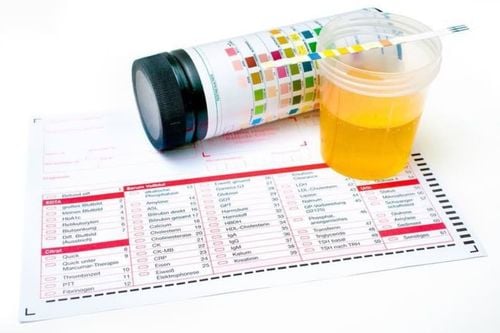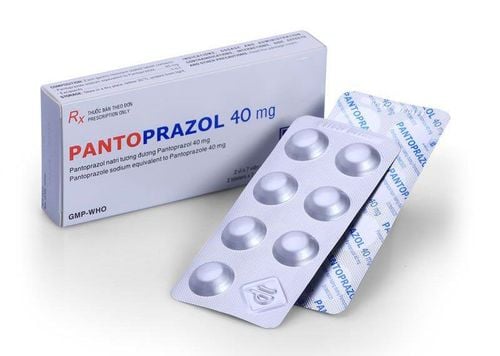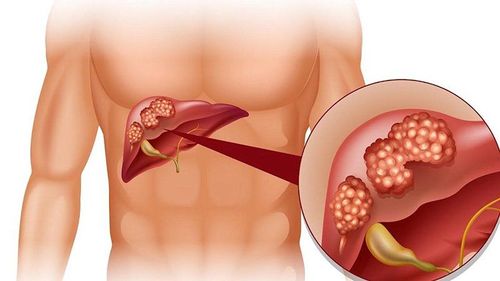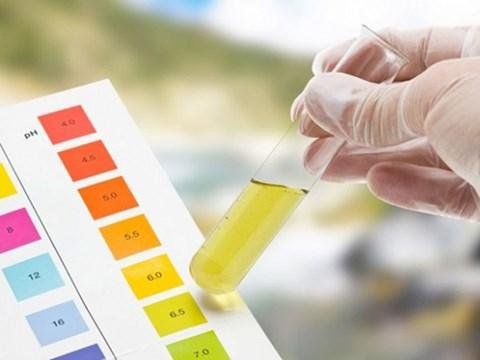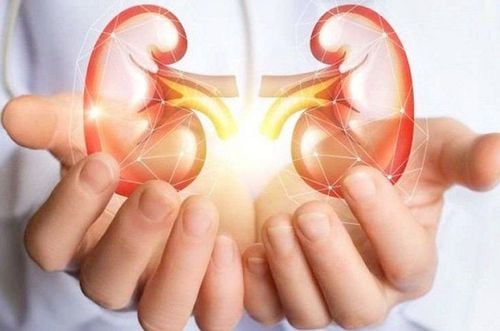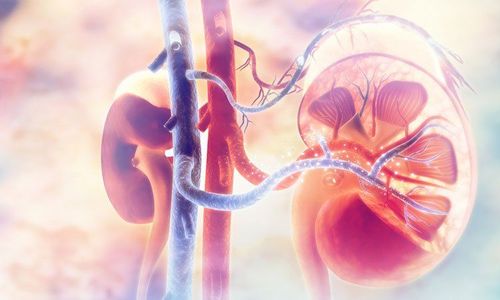This is an automatically translated article.
The article was professionally consulted by Doctor of Urology Department, Vinmec Central Park International General Hospital.A urinalysis is one of the general health checks often recommended by doctors. Through the analysis indicators in the urine sample, the doctor can diagnose and know if you are having any health problems or not. There is an SG in the urine test, so what does this mean?
1. What is SG in urine test?
SG Index full name is Specific Gravity - ie density. Urine specific gravity is defined as the amount of solutes dissolved in urine relative to water (=1,000). Urine density represents the ability of urine to concentrate or dilute urine to help assess the patient's fluid status or water balance.
This can also be an indicator of the possibility of bacterial infection, kidney disease such as glomerulonephritis, tubular disease, or pyelonephritis. In addition, some other diseases also need to use this index to evaluate such as liver disease, diabetes, congestive heart failure.
2. What does the SG number in a urine test show?
This test reflects the concentration of ions in the urine and is correlated with refractometry. In the presence of positive ions, protons are released by a mixed reagent, causing a color change of the Bromthymol color indicator from blue to green to yellow. Protein in the urine of 100-500 mg/dL or cetoacids, tends to increase urine density, the increase in density due to sugar concentrations >1000mg/dl (>56 mmol/l) may not be detected by this test .
Normal urine density as measured by the test strip is: 1.010-1.025. The corresponding changes in density and kidney status are as follows:
Decreased urine density (<1.005): This is a sign of poor urine concentration or excessive urinary excretion, common in urination. Renal insipidus, acute glomerulonephritis, pyelonephritis or tubular necrosis polyuria. Falsely low urine density may be due to alkaline urine; Urine density does not change (density = 1.010): Seen in end-stage renal disease, urine density often tends to reach 1.010, possibly due to kidney diseases causing chronic kidney failure, glomerulonephritis. conceited; Elevated urine specific gravity (>1.035): Increased urine specific gravity represents urine that is concentrated with large amounts of solutes. Causes may be dehydration (fever, vomiting, diarrhea), syndrome of inappropriate ADH secretion, adrenal insufficiency, renal failure, hypokalemia with edema, liver failure, congestive heart failure, syndrome kidney failure. In addition, increased urine density can also be caused by diabetes or by infusion of sugar, proteinuria, uremia, or by infusion of dextran solution.
3. How to take a urine sample for testing
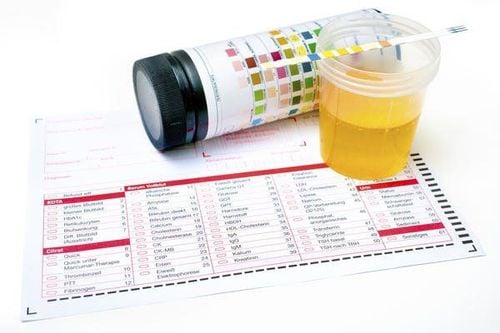
Cách lấy mẫu nước tiểu làm xét nghiệm
There are two methods of collecting urine for testing: taking a midstream urine sample (usually an early morning urine sample, first upon waking) or collecting 24-hour urine for analysis.
How to collect the entire urine sample in a 24-hour period is done as:
Step 1: Immediately after waking up, urinate all into the toilet without taking a sample. Your midwife or doctor will probably ask you to collect a urine sample at a fixed time in the morning; Step 2: Collect the entire amount of urine for the rest of the day and evening. After urinating, empty the urine vial into a container provided by the hospital; Step 3: Exactly 24 hours after Step 1, you collect the final urine sample and add it to the container. Midstream urine collection means that after urinating a little less will take the next part of urine for testing. The purpose of removing the first part of the urine is to reduce the chance of urine getting dirty from the external genital area, the anal area, which is very close to the urinary opening.
Hands used to collect urine should be washed to avoid dirty lines. If possible, wash the private area before urinating, the better.
You should keep in mind the details related to the meal such as the distance from after the meal to the time to collect the urine, whether eating or drinking too sweet... before collecting the urine. This will make the test interpretation results more accurate.
Urine test results should only be analyzed and interpreted by a doctor to ensure accuracy and understanding of health status. When your body has any problems, you should go for a general check-up to identify the disease and treat it promptly.
Please dial HOTLINE for more information or register for an appointment HERE. Download MyVinmec app to make appointments faster and to manage your bookings easily.




